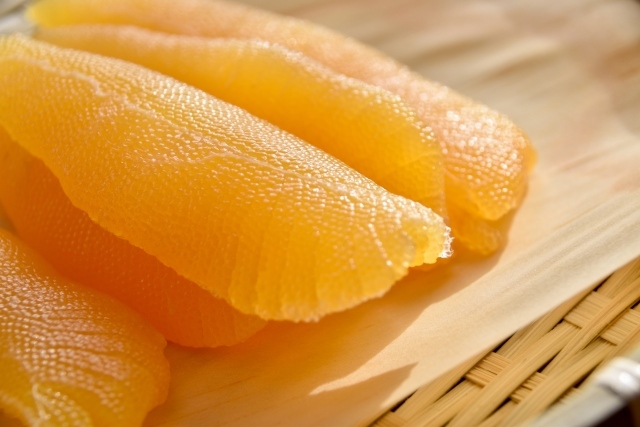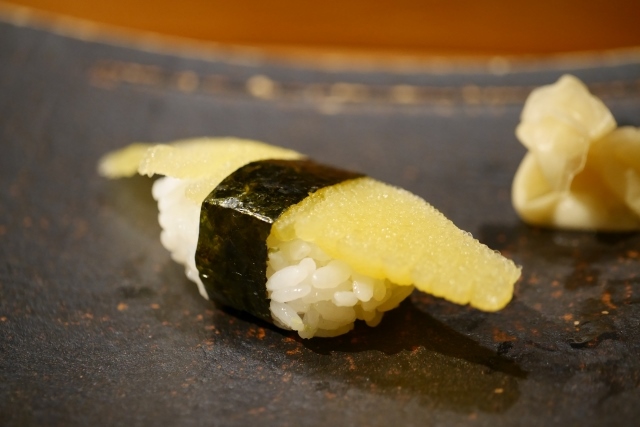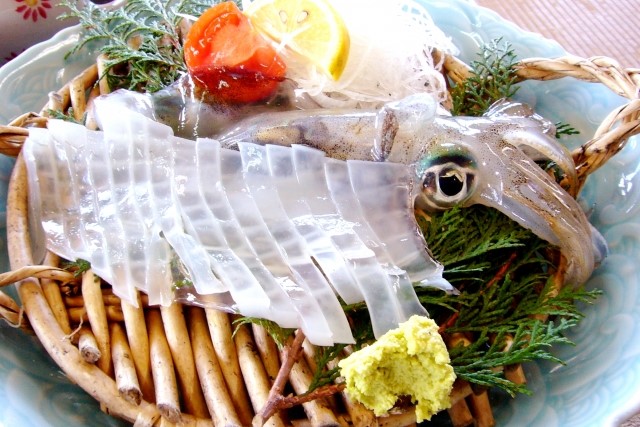Contents
Basic Information
In sushi, not only fish but also a variety of ingredients such as shrimp, crab, squid, and octopus are used. These ingredients are popular among foreigners, including those who are not fond of raw fish, as they are accessible sushi options. Furthermore, there are unique sushi varieties, such as nigiri sushi made with “kazunoko,” the roe of herring.
Aoriika (Bigfin Reef Squid)
The Aoriika, or Bigfin Reef Squid, is in season during the spawning period from spring to summer. Its flesh is elastic and has a sweet taste. Because the catch in Japan is small, imported products mainly circulate in the market.
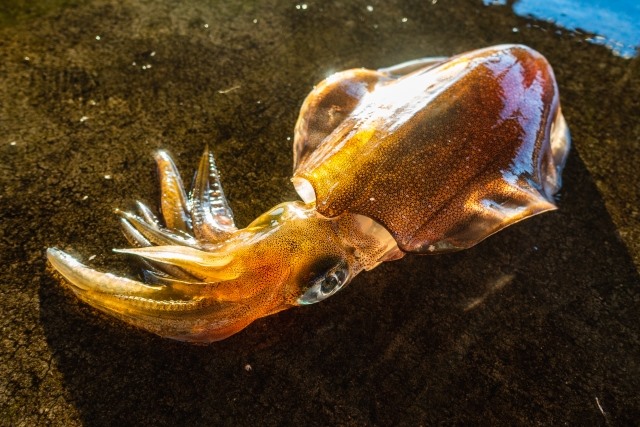
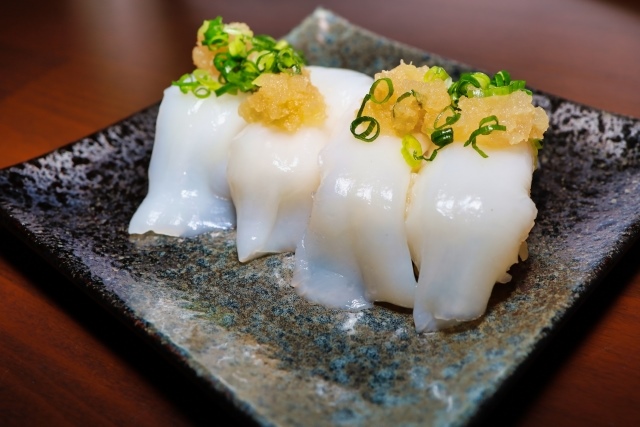
Surumeika (Japanese Flying Squid)
Surumeika, or Japanese Flying Squid, is the most commonly consumed squid in Japan and is a familiar ingredient. It is caught throughout the year nationwide, so its price and taste are stable. It can be used in grilled dishes, stews, salted dishes, dried foods, nigiri sushi, sashimi, etc., offering a wide variety of cooking methods.
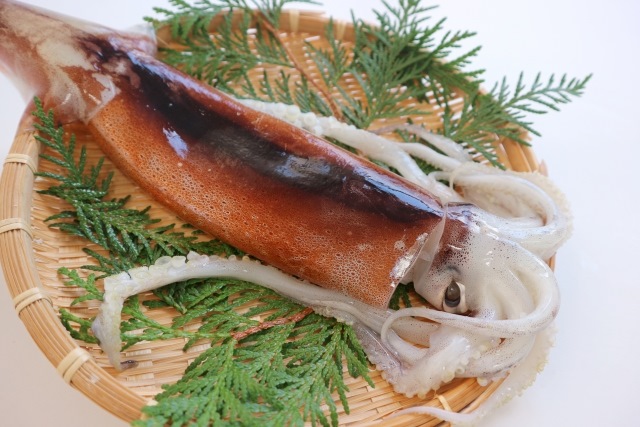
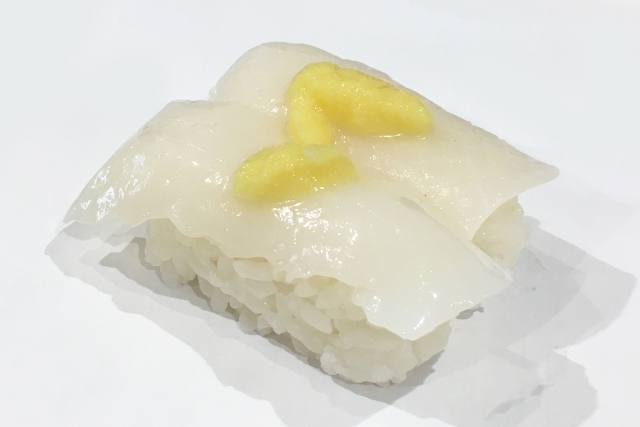
Amaebi (Sweet Shrimp)
Amaebi, or Sweet Shrimp, is mainly caught from Hokkaido to the Hokuriku region. This shrimp is primarily consumed raw and is popular as sushi and sashimi. Its flavor is characterized by its soft texture and sweetness.
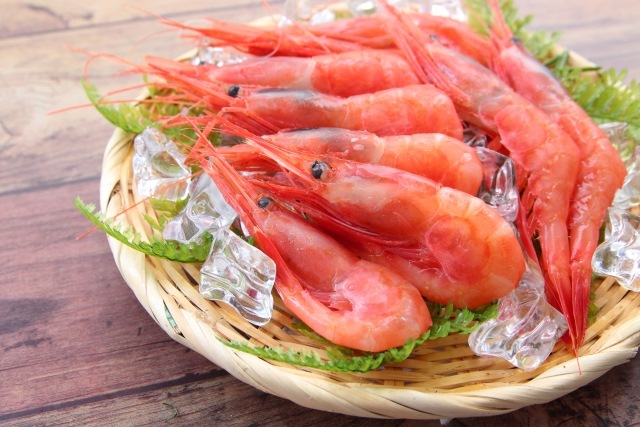
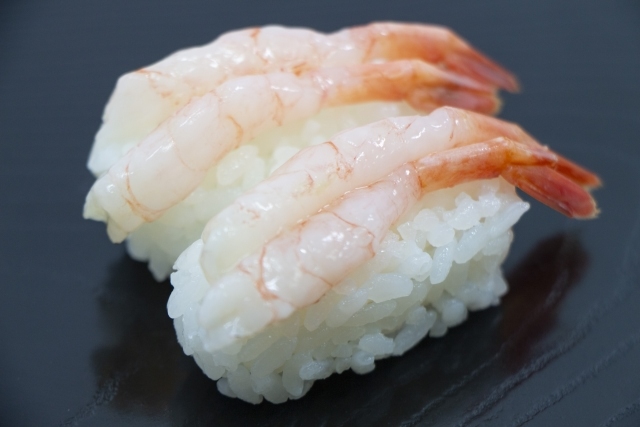
Shako (Mantis Shrimp)
The season for Shako, or Mantis Shrimp, is the spawning period from spring to early summer. When used in sushi, it is usually peeled after heating. Compared to shrimp, its taste is lighter.
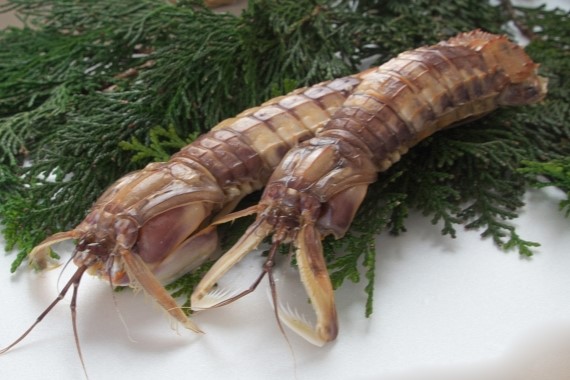
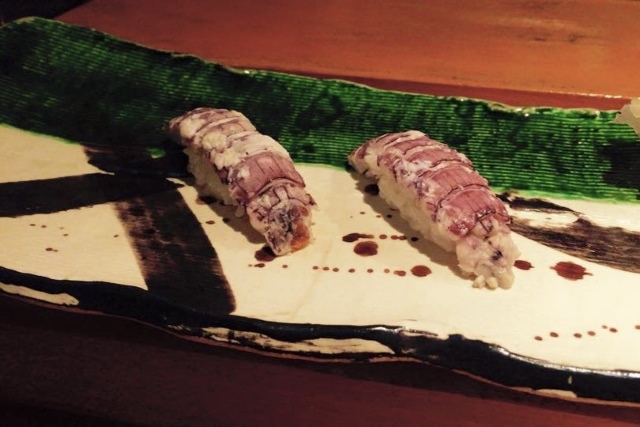
Tako (Octopus)
When using octopus in nigiri sushi, it can be either cooked or used raw. Either way, it is characterized by an elastic texture. In particular, raw octopus has a sweetness.
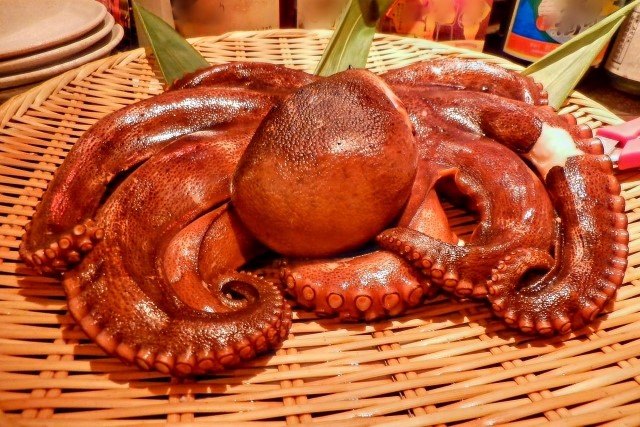
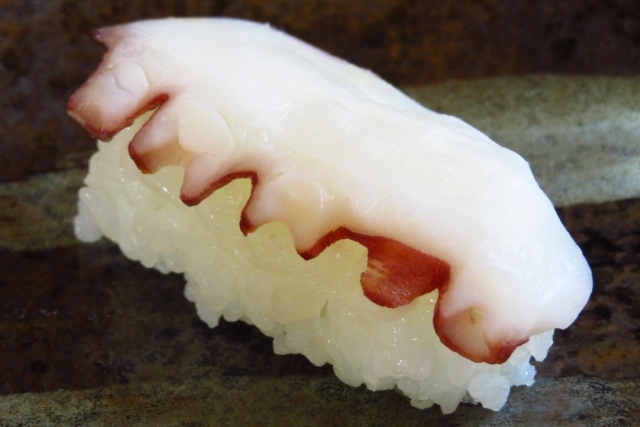
Kazunoko (Herring Roe)
Kazunoko is the ovaries of herring, pickled in salt and dried. The name “Kazunoko,” meaning “many children,” symbolizes fertility and is considered a good luck charm. In Japan, it is a traditional custom to eat Kazunoko during the New Year. It is characterized by its unique texture and the rich taste typical of fish eggs.”
